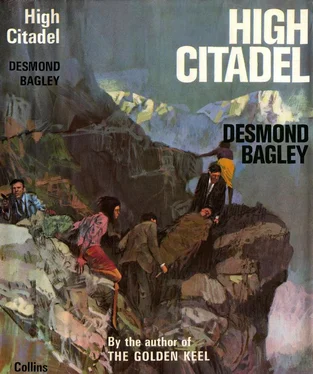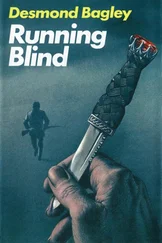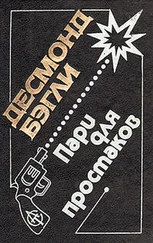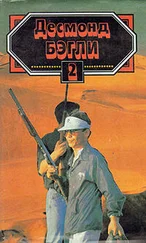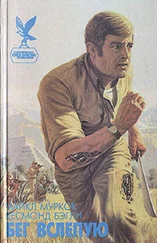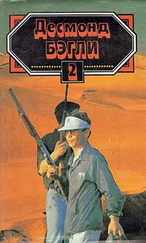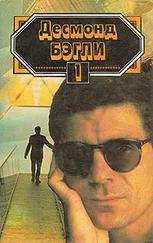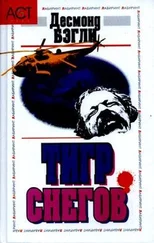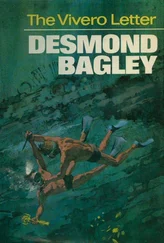Forester mumbled and Rohde slapped him. ‘You must not sleep — not yet,’ he said. ‘You must chew coca.’ He forced open Forester’s mouth and thrust a coca quid into it.
It took him over half an hour to open a pack and assemble the Primus stove. His fingers were cold and he was suffering from the effects of high altitude — the loss of energy and the mental haziness which dragged the time of each task to many times its normal length. Finally, he got the stove working. It provided little heat and less light, but it was a definite improvement.
He improvised a windshield from some pitons and pieces of blanket. Fortunately the wind came from behind, from the top of the pass and over the ice wall, so that they were in a relatively sheltered position. But vicious side gusts occasionally swept into the cave, bringing a flurry of snowflakes and making the Primus flare and roar. Rohde was glum when he thought of the direction of the wind. It was good as far as their present shelter went, but the snow cornice on top of the wall would begin to build up and as it grew heavier it would be more likely to break off. And, in the morning when they set off again, they would be climbing in the teeth of a gale.
He prayed the wind would change direction before then.
Presently he had melted enough snow to make a warm drink, but Forester found the taste of the bouillon nauseating and could not drink it, so he heated some more water and they drank that; at least it put some warmth into their bellies.
Then he got to work on Forester, examining his hands and feet and pummelling him violently over many protests. After this Forester was wide awake and in full possession of his senses and did the same for Rohde, rubbing hands and feet to bring back the circulation. ‘Do you think we’ll make it, Miguel?’ he asked.
‘Yes,’ said Rohde shortly; but he was having his first doubts. Forester was not in good condition for the final assault on the pass and the descent of the other side. It was not a good thing for a man with cracked ribs. He said, ‘You must keep moving — your fingers and toes, move them all the time. You must rub your face, your nose and ears. You must not sleep.’
‘We’d better talk,’ suggested Forester. ‘Keep each other awake.’ He raised his head and listened to the howls of the wind. ‘It’ll be more like shouting, though, if this racket keeps up. What shall we talk about?’
Rohde grunted and pulled the hood about his ears. ‘O’Hara told me you were an airman.’
‘Right,’ said Forester. ‘I flew towards the end of the war — in Italy mostly. I was flying Lightnings. Then when Korea came I was dragged in again — I was in the Air Force Reserve, you see. I did a conversion on to jets and then I flew Sabres all during the Korean war, or at least until I was pulled out to go back Stateside as an instructor. I think I must have flown some missions with O’Hara in Korea.’
‘So he said. And after Korea?’
Forester shrugged. ‘I was still bitten with the airplane bug; the company I work for specializes in airplane maintenance.’ He grinned. ‘When all this happened I was on my way to Santillana to complete a deal with your Air Force for maintenance equipment. You still have Sabres, you know; I sometimes get to flying them if the squadron commandant is a good guy.’ He paused. ‘If Aguillar pulls off his coup d’état the deal may go sour — I don’t know why the hell I’m taking all this trouble.’
Rohde smiled, and said, ‘If Señor Aguillar comes into power your business will be all right — he will remember. And you will not have to pay the bribes you have already figured into your costing.’ His voice was a little bitter.
‘Hell,’ said Forester. ‘You know what it’s like in this part of the world — especially under Lopez. Make no mistake, I’m for Aguillar; we businessmen like an honest government — it makes things easier all round.’ He beat his hands together. ‘Why are you for Aguillar?’
‘Cordillera is my country,’ said Rohde simply, as though that explained everything, and Forester thought that meeting an honest patriot in Cordillera was a little odd, like finding a hippopotamus in the Arctic.
They were silent for a while, then Forester said, ‘What time is it?’
Rohde fumbled at his wristwatch. ‘A little after nine.’
Forester shivered. ‘Another nine hours before sunrise.’ The cold was biting deep into his bones and the wind gusts which flailed into their narrow shelter struck right through his clothing, even through O’Hara’s leather jacket. He wondered if they would be alive in the morning; he had heard and read too many tales of men dying of exposure, even back home and closer to civilization, to have any illusions about the precariousness of their position.
Rohde stirred and began to empty two of the packs. Carefully he arranged the contents where they would not roll out of the cave, then gave an empty pack to Forester. Put your feet in this,’ he said. ‘It will be some protection against the cold.’
Forester took the pack and flexed the blanket material, breaking off the encrusted ice. He put his feet into it and pulled the drawstring about the calves of his legs. ‘Didn’t you say you’d been up here before?’ he asked.
‘Under better conditions,’ answered Rohde. ‘It was when I was a student many years ago. There was a mountaineering expedition to climb this peak — the one to our right here.’
‘Did they make it?’
Rohde shook his head. ‘They tried three times — they were brave, those Frenchmen. Then one of them was killed and they gave up.’
‘Why did you join them?’ asked Forester curiously.
Rohde shrugged. ‘I needed the money — students always need money — and they paid well for porters. And, as a medical student, I was interested in the soroche. Oh, the equipment those men had! Fleece-lined under-boots and thick leather over-boots with crampons for the ice; quilted jackets filled with down; strong tents of nylon and long lengths of nylon rope — and good steel pitons that did not bend when you hammered them into the rock.’ He was like a starving man voluptuously remembering a banquet he had once attended.
‘And you came over the pass?’
‘From the other side — it was easier that way. I looked down over this side from the top and was glad we did not have to climb it. We had a camp — camp three — on top of the pass; and we came up slowly, staying some days at each camp to avoid the soroche. ’
‘I don’t know why men climb mountains,’ said Forester, and there was a note of annoyance in his voice. ‘God knows I’m not doing it because I want to; it beats me that men do it for pleasure.’
‘Those Frenchmen were geologists,’ said Rohde. ‘They were not climbing for the sake of climbing. They took many rock samples from the mountains around here. I saw a map they had made — published in Paris — and I read they had found many rich minerals.’
‘What’s the use?’ queried Forester. ‘No one can work up here.’
‘Not now,’ agreed Rohde. ‘But later — who knows?’ His voice was serenely confident.
They talked together for a long time, each endeavouring to urge along the lagging clock. After a time Rohde began to sing — folk-songs of Cordillera and later the half-forgotten German songs that his father had taught him. Forester contributed some American songs, avoiding the modern pop tunes and sticking to the songs of his youth. He was halfway through ‘I’ve Been Working on the Railroad’ when there was a thunderous crash from the left which momentarily drowned even the howls of the gale.
‘What’s that?’ he asked, startled.
‘The snow cornice is falling,’ said Rohde. ‘It has built up because of the wind; now it is too heavy and not strong enough to bear its own weight.’ He raised his eyes to the roof of the ice cave. ‘Let us pray that it does not fall in this place; we would be buried.’
Читать дальше
Конец ознакомительного отрывка
Купить книгу
